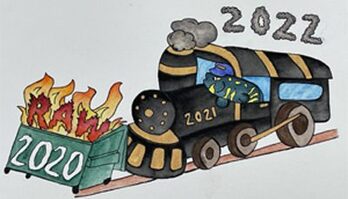Corals Abstracts
Watch Videos (Login required)
|
Florida Coral Rescue
Tanya Ramseyer, Beth Firchau, Florida Fish & Wildlife Association of Zoos & Aquariums Full Abstract
Since 2014, the Florida Reef Tract (FRT) has been battling a disease called Stoney Coral Tissue Loss Disease (SCTLD). Over 20 species of reef building corals, including Endangered Species Act listed corals, are susceptible to the disease, often resulting in whole colony loss. Some species experience up to 100% mortality at individual sites. Since November 2018, the Association of Zoos and Aquariums (AZA) has partnered with the Florida Fish and Wildlife Conservation Commission and other agencies to create land-based nurseries for FRT corals in need of rescue from the advancing disease. To date nearly 2000 corals have been removed from the FRT and are being maintained at AZA facilities. Some of the coral species never been held in human care and much is being learned through the work of AZA coral aquarists. New relationships and networks have been created impacting how zoos and aquariums are viewed as partners for conservation. |
Partnering in Coral Restoration Ben Daughtry, Dynasty Marine Full Abstract
Aquarium Encounters of the Florida Keys and its sister company, Dynasty Marine Associates, have recently begun working with a local not-for-profit company called Reef Renewal USA to help them develop a community-based coral reef restoration program in the Florida Keys. Although the Reef Renewal USA “brand” is relatively new, the management team are some of the key people who pioneered coral reef restoration in Florida. This new endeavor is blending the talents and resources of a passionate team of people from all three companies to launch a bold and innovative approach to coral reef restoration. A key component of this new approach is to fully train and engage the local community in the program so that a sense of ownership is developed. Local and out of town volunteers will be able to participate in everything from land based coral fragging programs to outplanting and reef maintenance programs taking place throughout the Florida Keys. This program is working with over twenty species of corals, many of which have never been grown commercially or used for reef restoration programs. New, cutting-edge techniques for growing and outplanting these corals are being developed and implemented by this group of entrepreneurs, with the goal of being able to restore more reefs with more corals at a substantially better value than today’s current average. |
Expedition Colombia:
Coral Reef Restoration in South America (2020) Barrett Christie, Maritime Aquarium at Norwalk Full Abstract
The reefs of Colombia are among the most degraded in the occidental world, with an estimated 1% of historical coral cover left intact amid warming seas, sedimentation, dynamite fishing, freshwater influx, and improper wastewater discharge. In 2019 the Maritime Aquarium undertook a 6 week expedition to Colombia to engage local stakeholders in jellyfish propagation, sea turtle conservation, and coral reef restoration. Alongside staff from the Parque Nacional Natural Corales del Rosario y San Bernardo, the Ocenario Islas del Rosario, Acquario de Rodadero, and the Universidad del Magdalena, Maritime biologists documented the first-ever recorded wild spawning of two Acropora species within the Marine Protected Area, and likely the first for the country. Over 100,000 eggs were collected from staghorn coral, Acropora cervicornis, and larviculture techniques were taught to locals to improve their understanding of sexual coral propagation techniques, resulting in thousands of coral recruits being generated for reef restoration and ongoing research projects intended to raise the standard of reef restoration in the region. Doing conservation work in remote locations such as South America has many inherent challenges to overcome, but also great potential for high-impact conservancy. |

